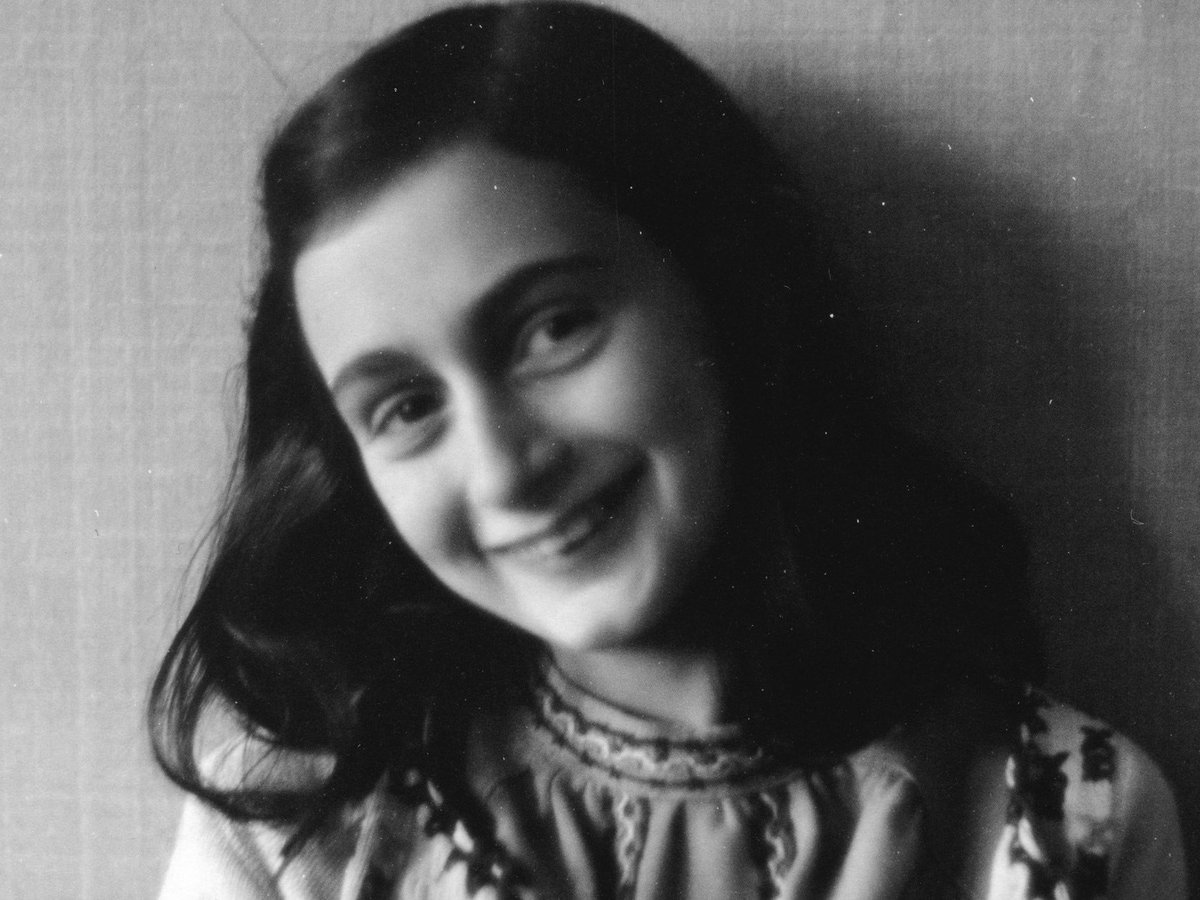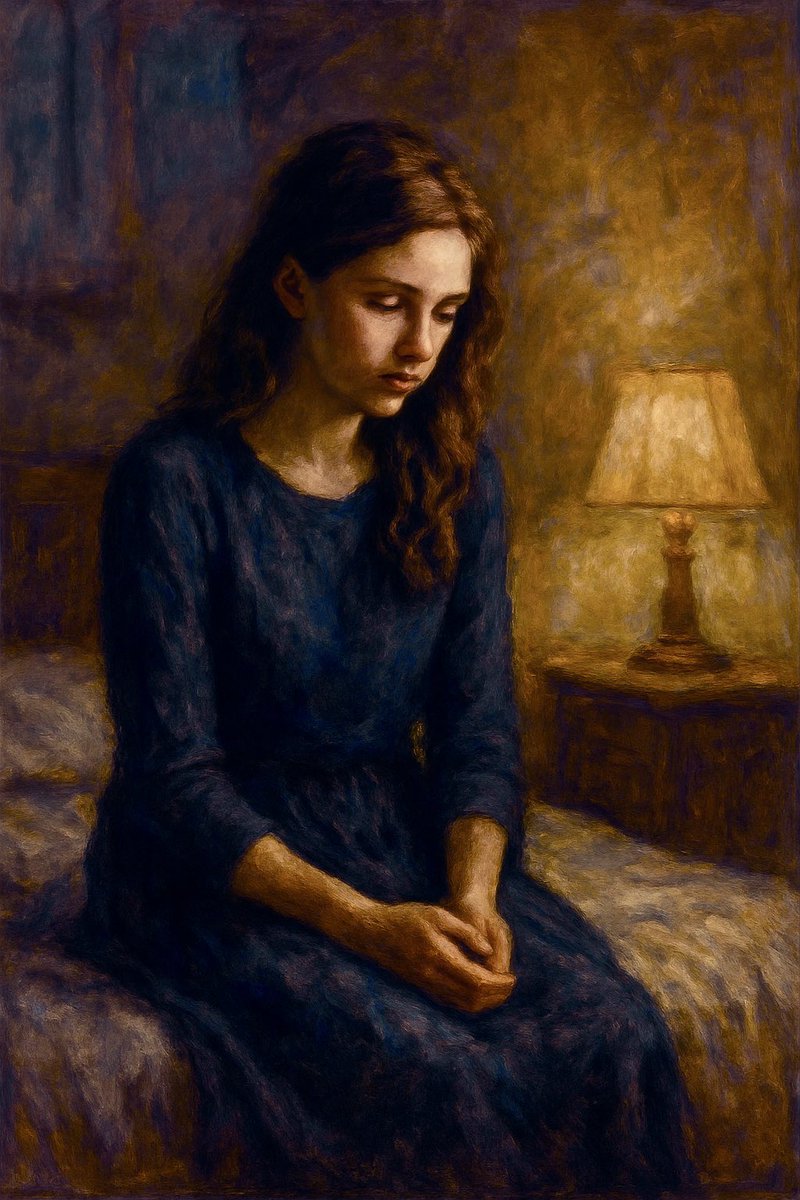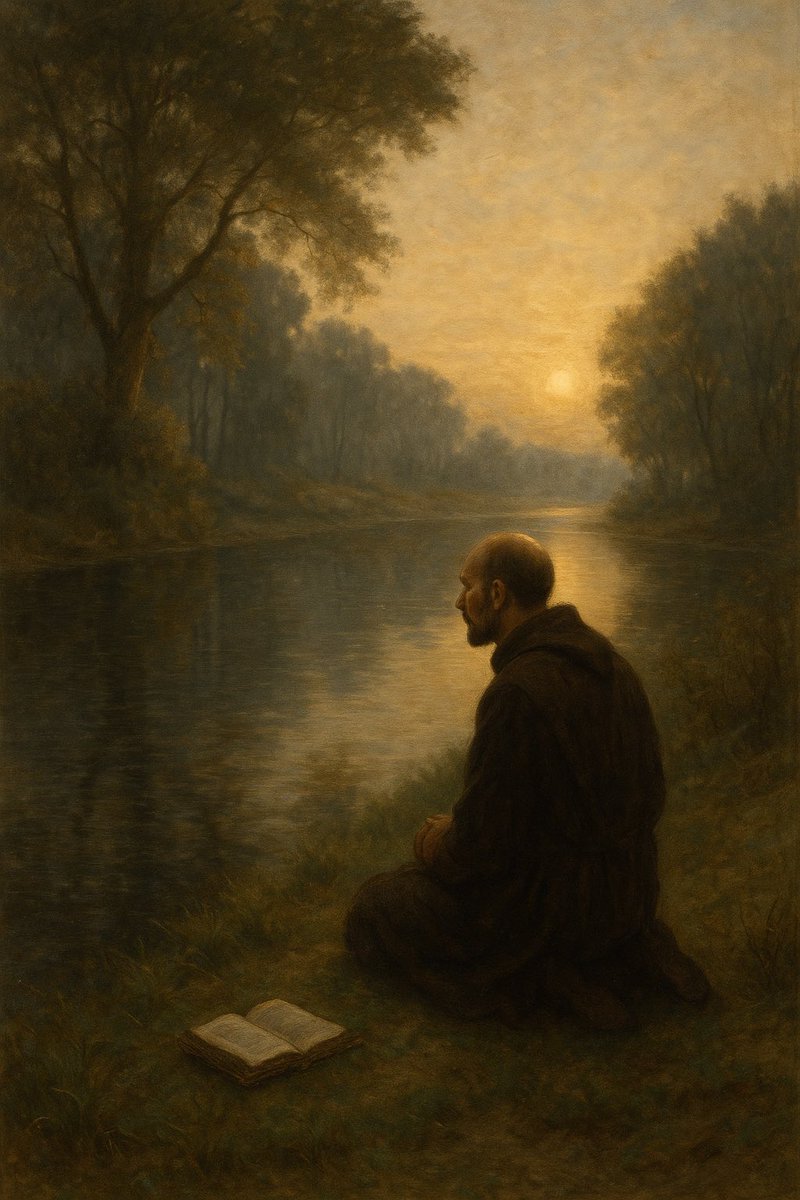1/21 🧵
On this day—August 4th, 1944—the Secret Annex was raided. Anne Frank and seven others were arrested by the Gestapo. Their two years in hiding ended with the heavy sound of boots on the stairs. It was the beginning of the end.
On this day—August 4th, 1944—the Secret Annex was raided. Anne Frank and seven others were arrested by the Gestapo. Their two years in hiding ended with the heavy sound of boots on the stairs. It was the beginning of the end.

2/21
They had hidden for 25 months. Otto and Edith Frank, their daughters Margot and Anne. Hermann, Auguste, and Peter van Pels. And Fritz Pfeffer. All betrayed. All taken. The annex was silent once more.
They had hidden for 25 months. Otto and Edith Frank, their daughters Margot and Anne. Hermann, Auguste, and Peter van Pels. And Fritz Pfeffer. All betrayed. All taken. The annex was silent once more.
3/21
Anne was just 15 years old, but she had already known exile, persecution, and fear. Her family had fled Nazi Germany. They were Jews in Amsterdam, slowly squeezed by laws and hatred until they vanished into a secret world.
Anne was just 15 years old, but she had already known exile, persecution, and fear. Her family had fled Nazi Germany. They were Jews in Amsterdam, slowly squeezed by laws and hatred until they vanished into a secret world.
4/21
The annex wasn’t silent. Not really. Behind the bookcase door were voices, footsteps, arguments, meals, prayers, and whispers. A family trying to survive. A girl trying to grow up.
The annex wasn’t silent. Not really. Behind the bookcase door were voices, footsteps, arguments, meals, prayers, and whispers. A family trying to survive. A girl trying to grow up.
5/21
Anne wrote everything down. First as a diary to her imaginary friend “Kitty.” Later, she rewrote her entries, dreaming of publishing a book after the war.
She wanted to become a journalist. She wanted to live.
Anne wrote everything down. First as a diary to her imaginary friend “Kitty.” Later, she rewrote her entries, dreaming of publishing a book after the war.
She wanted to become a journalist. She wanted to live.
6/21
She wrote because she couldn’t be heard. She wrote because she believed life still meant something. Her pages are full of longing and laughter, jealousy and joy. She was so young—and so achingly alive.
She wrote because she couldn’t be heard. She wrote because she believed life still meant something. Her pages are full of longing and laughter, jealousy and joy. She was so young—and so achingly alive.
7/21
Anne was sharp and funny. She argued with her mother. She wondered if Peter liked her. She tried to understand God. She felt the walls of the annex closing in, but she kept writing.
Anne was sharp and funny. She argued with her mother. She wondered if Peter liked her. She tried to understand God. She felt the walls of the annex closing in, but she kept writing.
8/21
“In spite of everything,” she wrote, “I still believe that people are really good at heart.”
“I don’t want to have lived in vain like most people.”
She didn’t.
“In spite of everything,” she wrote, “I still believe that people are really good at heart.”
“I don’t want to have lived in vain like most people.”
She didn’t.
9/21
On August 4th, Anne’s diary was left behind. Miep Gies, one of the people who had helped hide them, found it after the arrest. She didn’t read it. She saved it in the hope of returning it to Anne.
On August 4th, Anne’s diary was left behind. Miep Gies, one of the people who had helped hide them, found it after the arrest. She didn’t read it. She saved it in the hope of returning it to Anne.
10/21
But Anne never came back.
After their arrest, the Franks were sent to Westerbork transit camp, then Auschwitz. That was the last place Anne saw her father.
But Anne never came back.
After their arrest, the Franks were sent to Westerbork transit camp, then Auschwitz. That was the last place Anne saw her father.
11/21
Anne and Margot were later transported to Bergen-Belsen, where the conditions were horrific. Both sisters died there—likely of typhus—in early 1945. Margot first. Then Anne. She was just 15.
Anne and Margot were later transported to Bergen-Belsen, where the conditions were horrific. Both sisters died there—likely of typhus—in early 1945. Margot first. Then Anne. She was just 15.
12/21
Their mother, Edith, died of starvation in Auschwitz in January 1945. The van Pels family and Fritz Pfeffer all perished.
Only Otto Frank, Anne’s father, survived.
Their mother, Edith, died of starvation in Auschwitz in January 1945. The van Pels family and Fritz Pfeffer all perished.
Only Otto Frank, Anne’s father, survived.
13/21
When Otto returned to Amsterdam, Miep gave him Anne’s diary. He read it—slowly, painfully—and decided it needed to be shared.
Anne had wanted to be a writer. Otto helped make that happen.
When Otto returned to Amsterdam, Miep gave him Anne’s diary. He read it—slowly, painfully—and decided it needed to be shared.
Anne had wanted to be a writer. Otto helped make that happen.
14/21
The Diary of Anne Frank was first published in Dutch in 1947. Since then, it has been translated into more than 70 languages. Millions have read it. Many have wept over it. Some found hope in it.
The Diary of Anne Frank was first published in Dutch in 1947. Since then, it has been translated into more than 70 languages. Millions have read it. Many have wept over it. Some found hope in it.
15/21
Anne did not write for sympathy. She wrote to be understood. She wrote to become who she was. That’s why her voice still speaks so clearly. She was not an idea or a cause. She was a daughter. A sister. A writer. A girl.
Anne did not write for sympathy. She wrote to be understood. She wrote to become who she was. That’s why her voice still speaks so clearly. She was not an idea or a cause. She was a daughter. A sister. A writer. A girl.
16/21
She belonged to a people who have suffered much—and still do. As Christians, we must never forget this. We must stand against antisemitism, hatred, and the lies that made the Holocaust possible.
Never again must mean never again.
She belonged to a people who have suffered much—and still do. As Christians, we must never forget this. We must stand against antisemitism, hatred, and the lies that made the Holocaust possible.
Never again must mean never again.
17/21
And still, even now, Anne’s words invite us back to ourselves. To ask what we are doing with the time we’re given. To ask whether we’re honest, whether we’re brave, whether we believe in goodness—even in the dark.
And still, even now, Anne’s words invite us back to ourselves. To ask what we are doing with the time we’re given. To ask whether we’re honest, whether we’re brave, whether we believe in goodness—even in the dark.
18/21
She reminds us that suffering doesn’t cancel dignity. That a soul is still a soul even when the world turns away. That writing, art, truth, and faith can survive locked doors.
Sometimes, even beyond death.
She reminds us that suffering doesn’t cancel dignity. That a soul is still a soul even when the world turns away. That writing, art, truth, and faith can survive locked doors.
Sometimes, even beyond death.
19/21
Anne Frank didn’t live to become a woman. But she lived long enough to become a witness.
And through the words she left behind, she still lives. A girl. A writer. A voice.
Anne Frank didn’t live to become a woman. But she lived long enough to become a witness.
And through the words she left behind, she still lives. A girl. A writer. A voice.
20/21
May her memory be a blessing.
May we learn to listen to the ones the world forgets. May we have the courage to protect what is fragile, and the wisdom to recognize that holiness often hides in small, quiet lives.
May her memory be a blessing.
May we learn to listen to the ones the world forgets. May we have the courage to protect what is fragile, and the wisdom to recognize that holiness often hides in small, quiet lives.
21/21
Today is August 4th. Anne Frank was taken 81 years ago today.
She is not forgotten.
Not by the God who made her. Not by the generations who have read her words. Not by those who still choose hope.
And never by those who love the light.
Today is August 4th. Anne Frank was taken 81 years ago today.
She is not forgotten.
Not by the God who made her. Not by the generations who have read her words. Not by those who still choose hope.
And never by those who love the light.
• • •
Missing some Tweet in this thread? You can try to
force a refresh







